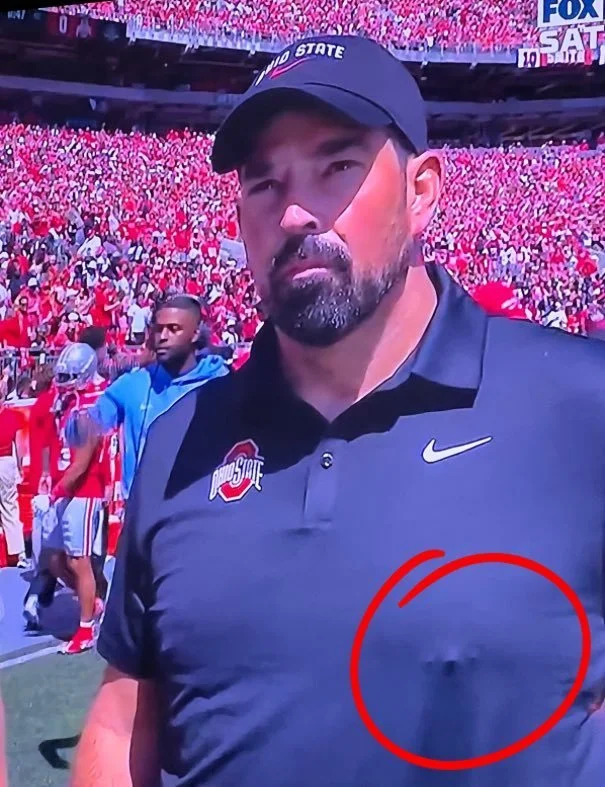Matthew 4:12-32
Now, when Jesus heard that John had been arrested he withdrew to Galilee. He left Nazareth and made his home in Capernaum, in the territory of Zebulun and Naphtali, so that what had been spoken by the prophet might be fulfilled:
“Land of Zebulun, land of Naphtali, on the road by the sea, across the Jordan – Galilee of the Gentiles. Those who sat in darkness have seen a great light; those in the region and the shadow of death, on theme light has shined.”
From that time, Jesus began to proclaim, “Repent, for the kingdom of heaven has come near.”
As he walked along the Sea of Galilee, he saw two brothers, Simon, who is called Peter and Andrew, his brother, casting a net into the lake – for they were fishermen. He said to them, “Follow me and I’ll make you fish for people.” Immediately, they left their nets and followed him. As he walked along a little further, he saw two other brothers, James the son of Zebedee, and his brother John, in the boat with their father, mending their nets, and he called them. Immediately, they left the boat and their father, and followed him.
And Jesus went throughout Galilee, teaching in their synagogues and proclaiming the good news of the kingdom, and curing every disease and every sickness among the people.
I have those walking monks from Texas on the brain lately. They are inspiring a piece of what we hope to do together during Lent in a few weeks, which you’ll hear about soon enough. But I they came to mind as I read this morning’s Gospel story about Jesus, making his way around Galilee.
Surely, you’ve heard about the Buddhist monks from Fort Worth, Texas. They’ve been “walking for peace” since October, with plans to make their way to Washington, D.C., sometime in February. 2,300 miles, I believe. Just walking. Stopping every once in a while to give talks about what they’re up to – which is nothing more and nothing less than walking as an invitation to and witness about being mindful of peace and compassion. They’ve been compelled and inspired, of course, by a world – and our nation, in particular – that displays the opposite of those things, too much of the time; peace and compassion, I mean.
So, they’re just walking. And passing out prayer cords and flowers along the way. Shining a light on the call to be generous and deliberate about loving-kindness.
Just walking. With their rescue dog Aloka, who walks faithfully along with them, and who has almost 700,000 followers on Facebook.
Just walking. Even though at least one of them was injured along the way, after being hit by a car, and having his leg amputated.
Just walking. Receiving the grace and generosity of strangers in the form of food and water and blessings of support and encouragement.
Just walking. And gathering crowds as they go – in fits and starts – in various places; in all kinds of weather; sometimes a dozen or so; sometimes it looks like hundreds or thousands walking along with them.
And all of it made me wonder about what we just heard about the beginning of Jesus’ ministry – and if it started out just as simply and profoundly – with him just walking.
When Jesus heard that John the Baptist had been arrested – which we know happened because John had spoken out against King Herod’s unlawful behavior – Jesus likely felt like things had taken a turn in his world … that things had taken a turn, perhaps, in the world at large … to the point that he may not have felt safe or settled anymore in his hometown of Nazareth … maybe that he just couldn’t sit still any longer …
In fact, while Matthew’s Gospel says that Jesus “left” Nazareth, we know from Luke’s Gospel that there was more to it than that. Jesus actually got run out of town. He was kicked out of Nazareth. His hometown friends, family, and neighbors threatened to hurl him off a cliff, remember – because Jesus had the nerve to proclaim good news for the poor and recovery of sight for the blind; because he promised release for captives and freedom for the oppressed; because he reminded people about God’s prophets doing ministry with – caring for – loving – and tending to – the outsiders, the outcasts, and the foreigners in Minneapolis … I mean the outsiders, the outcasts, and the foreigners in their midst.
But when he was threatened with that cliff after standing up for foreigners, outsiders and outcasts, the Gospel says Jesus “passed through the midst of them and went on his way.”
He just walked.
And in today’s Gospel, Jesus is just getting started. I imagine him walking alone when he meets Simon and Andrew – that first set of brothers who leave their nets and tag along, with the simple curiosity of what it might mean to “fish for people,” instead of, say, small mouth bass, for a change. And then Jesus gathers up James and John, who leave their boat and their dad behind, to go wherever Jesus was headed next.
And maybe all of that is why some followed and some didn’t. Maybe Zebedee was just too old for all of that walking. Maybe Zebedee wanted his boys to get out of the house, off the payroll, and about their own business for a change. Or, maybe Zebedee – like all those people in Jesus’ hometown – wasn’t on board with everything Jesus was preaching and teaching and calling them toward: release for the captive, freedom for the oppressed, care for the widow and the orphan, concern for the outcast, the immigrant, and the resident aliens in their midst.
All of this is to say that this way Jesus was walking – and calling his followers to follow – was a hard one. It was counter-cultural and anti-establishment. It was dangerous and lonely, at times. It was not for the faint of heart. It was open-hearted and gracious to a fault. It was not popular or powerful – it was worthless and weak by the world’s standards.
But it was full of hope … hope that in spite of the brokenness of the world … that precisely because of the world’s brokenness … the kingdom of heaven had come near, in Jesus. Hope … that just like before … those who sat in darkness had seen a great light. Hope … that just like before … those who sat in the region and the shadow of death … would have the light of God shine upon them, again.
We could surely use some light to shine in our darkness right about now. We could surely use some hope in the face of the bad news, the violence, the lies, the unnecessary and unwarranted death and despair that seem to be winning the day for so many.
And I heard someone say recently that “hope is not something you HAVE, it’s something you DO.”
“Hope is not something you HAVE, it’s something you DO.”
And that’s what I see in those walking monks … and it’s what I imagine Jesus was up to as he walked, too: holding out hope – for himself as he worried about John the Baptist’s arrest; manifesting hope – as he grieved the loss of his hometown and their threats against him; holding out hope - as he saw the struggle and suffering of the hurting world around him; manifesting hope – for those who dared to walk with him for all of the above, and for all of us, just the same.
I know it’s not enough all of the time – just walking certainly doesn’t feel like enough for many of us these days. And I know there won’t be a lot of walking in the storm and snow that has covered so much of our country this weekend. But let’s follow Jesus when and however we’re able – with actions that hold out and that manifest hope – in the face of what can be so disheartening so much of the time.
When things seem so frustrating, so fearful, so hopeless, imagine that HOPE isn’t something you HAVE or something you can LOSE, even. Imagine, instead, that HOPE is something we can DO.
So let us worship, learn and serve. Let us pray and be generous and kind. Let us walk and march for peace whenever the opportunity presents itself. And let us repent, too, that thing today’s Gospel says Jesus couldn’t shut up about once he started making his way around Galilee. “Repent for the kingdom of heaven has come near.”
Repent for the things we’ve said and left unsaid.
Repent for the things we’ve done and left undone.
Repent for the actions we’ve taken and for the apathy we’ve shown.
Repent for the ways we’ve ignored Jesus’ invitation to follow him with faith, courage, justice, and love for all people.
Let’s repent because it means to change; because it means to turn around; because it means to do better now that we know better. Repent, because it means to exercise the Christ-like qualities of sacrifice, surrender, and humility.
Let us repent, as a supreme act of faith, not because we HAVE to, but because we GET to. Repent, not full of shame or full of guilt or despair. But, let us repent and be filled with HOPE for the grace, mercy, forgiveness, and CHANGE that will come when we let the love of God, in Jesus, have its way with us, with our neighbor, with our enemies, and with the world God so loves.
Amen.





